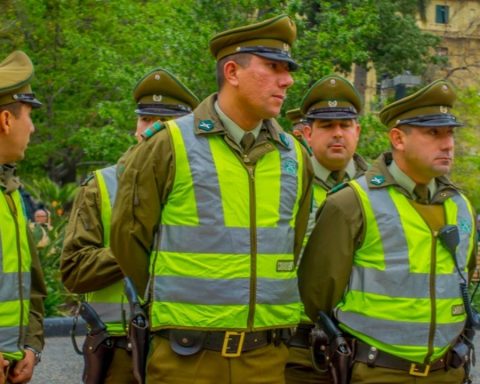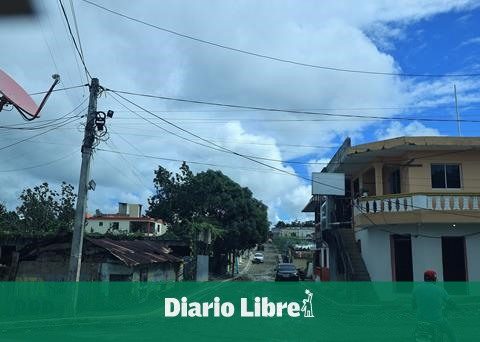100 days have passed since the plebiscite in which the proposal for a new Constitution was rejected, in the plebiscite of September 4 with 61.9% of the votes, for the political parties to sign a joint pact that needs the support of 4/7 in the Chamber of Deputies and the Senate to vote on a constitutional reform that initiates a new constituent body.
The UDI deputy Juan Antonio Coloma assures about the agreement reached —which is made up of 50 elected people who will draft the proposal and 24 experts appointed by Congress who will prepare a non-binding draft and may influence the end of the process— that “in practice We have a mixed body.”
On an electoral pact in Chile Let’s go for the elections of the members of the body, he assures that Republicans are invited. However, remember that the community founded by José Antonio Kast was part of the band that he promised to reject for “a good and new Constitution” and they were subtracted the next day.
Does the agreement leave your electorate satisfied? They say that it is a possibility that part could migrate to Republicans who had a strong position against opening a new constitutional process.
-Every day that passes and people realize that this is a shorter, cheaper process, that seeks agreements, that it is mixed and there is no blank sheet, many of those who initially criticized it as they go reading they realize that it is good for the institutional framework.
-There are those who say that the conversation between Javier Macaya and President Gabriel Boric where they explored a 100% elected body was a disadvantage for Chile. Let’s go into the negotiations when some pro-government leaders were already showing signs of opening up to a mixed…
-In practice we have a mixed body. When we say that the experts —appointed by Congress— generate a preliminary draft on which the elected officials will work, and at the end of the drafting work of the elected representatives, the experts can make observations, and a commission is produced as a result of these observations mixed, what there is is a mixed process that will force both the experts and those elected to agree.
-Some considered that the UDI leader “ran with his own colors” by proposing to advance in formulas that he had not probed with his sector…
-What Javier Macaya did was assume leadership. This often requires exploring different formulas. Over the course of three months, people made proposals that we discussed within the coalition and that is how we reached an agreement.
-What role do you think Macaya’s conversation with President Gabriel Boric had?
-The meeting between Boric and Javier was important, but as important as that there were others where the possibility of reaching this agreement was taking shape. There is no doubt that Javier Macaya played a fundamental role since it was clear on the day of the triumph of the rejection that we would work for a new Constitution. He signaled that we were going to keep our word.
The commitment in the campaign was from all of us who were in the Rejection. There are some who fulfill our commitment and others who do not. In the electoral strip of the Rejection the right, the extreme right, the center right, sectors of the center were represented. And some the next day wanted to erase the commitments made with their elbow.
-The Republicans?
-They were part of the strip where we promised to have a good and new Constitution. And the next day they are subtracted. I understand that there are times that perhaps transitory popularity leads to that, but in politics it is essential to keep your word.
-Guillermo Ramírez said that to be President of the Republic one must “have vision” and that the Republican party is being “short-termist”.
-I think that when they withdrew on day one of the conversations they made a mistake. When one is in politics, one cannot withdraw from the conversations. What we are establishing are the bases of the Chile that is to come. Each party will decide if they want to stay at the end, or are able to go looking for the agreement. The only way to convince another is to be at the tables, not by folding. I think that the Republicans are indeed short-sighted.
-Why did the UDI insist on carrying out the process when it does not seem to be a priority for the citizens?
-For us, citizen security and facing migration are vital issues in which the Government has ignored. But the urgent must walk hand in hand with the important. The important thing was to be able to close the constituent cycle, give us a good and new Constitution where we feel represented, that does not make the mistakes of the last Constituent Convention.
-Flavia Torrealva, president of a group of the government alliance, FRVES, he said that pFor the political agreement to be maintained, the right must show will to carry out the tax and pension reform… What do you think of his words?
-She signed the agreement. What needs to be done is a call to be able to keep one’s word and signature on a document. We are available to make progress on both issues, but they need to be modified. This was part of the proposal that was defeated and that perhaps some hope to revive in bills.
After being asked if he believed that Jaime Guzmán would have signed this agreement, José Antonio Kast, former presidential candidate and founder of the Republican Party, replied that he believed not. He assured that Guzmán “was very clear on what the person was about the State. Very clear on what the principle of subsidiarity was. These issues and Chile Vamos itself has been discarding the principle of subsidiarity to enter a social State of rights”.
– Does the UDI continue to defend the principle of subsidiarity?
-There is nothing worse than speaking on behalf of what a person who is not alive would have done, who was also murdered in this case. Trying to say, `I am the one who represents him,’ does not correspond to someone who was the founder of a party, a group that Kast himself resigned from.
In the twelve bases there is talk of a social and democratic State of rights, but the sentence continues. It speaks of fiscal responsibility and civil society is guaranteed to be able to participate in the development of a country.
-What does Jaime Guzmán mean for the post-colonel generation in the UDI?
-A reference, a leader, someone who was assassinated by the extreme left for defending the ideas in which we believe. If we learned anything from him, it is that you always have to put Chile ahead, that means reaching agreements, which if you are not willing to talk, it is very difficult to reach.
-Can you describe to me the moment that you consider to be the most critical of the negotiations?
-Generally, in all conversations, the days prior to the agreement are the most difficult. The tension in the previous week was a sign that the agreement was coming, but that concessions had to be made. On Tuesday we were talking about the mixed, and President Boric said that they understood that a mixed convention was important to the opposition and that an imperfect agreement was preferable to not having an agreement. Within hours his coalition changed its mind. Those meetings were tough. We asked them why they took the floor from their president. Perhaps that hard conversation was what made it easier for them to relax their positions to reach an agreement on Monday.
– What do you think that there are parties that, although they signed the agreement, have given signs that they will seek to make changes through indications?
-President Boric is playing an important part of the leadership of his coalition by avoiding an attempt to dismember an agreement that we are not going to allow. It is he who, through the president of his party —Diego Ibáñez from Convergencia Social— signed an agreement, made a commitment and has to fulfill it. I hope all the votes are there. The word of the President is pledged.
-From the left they assure that bases, plus an admissibility committee, plus a mixed commission of experts and elected officials to resolve controversies at the end of the process, is excessive tutelage that will not allow this convention to hold substantive discussions. What do you think about this vision?
-It allows to have a dialogue of a new Constitution, but under a system that allows to give stability to the country and avoid refoundational processes. It will be possible to discuss issues such as, for example, regionalization, yes. Is it going to be possible to refound Chile? Obviously not, and that is what we wanted to protect.
-Who should Chile Vamos be with in the electoral agreement to take the editors of the body to an election?
-We have to advance to an agreement between all of us who were in the Rejection campaign, since we were in defense of the same fundamental principles for Chile. In this campaign there was a reconfiguration of the political forces.
-With Republicans?
-Republicans must decide if they want to be part of the unit or the extreme. I would hope that with the understanding that we are risking the Constitution for the next 30 or 50 years, there are no people who want to go free, but rather that we are capable of looking for what unites us. Whoever tries to save himself is only making a serious mistake thinking about the next 50 years of Chile.
















